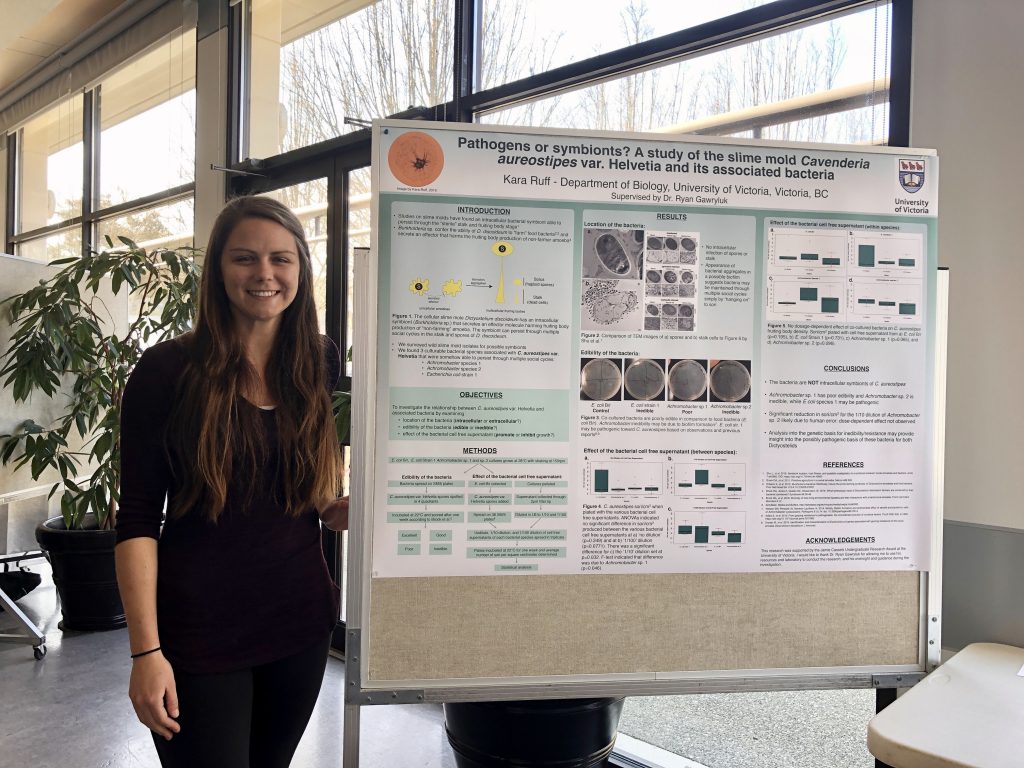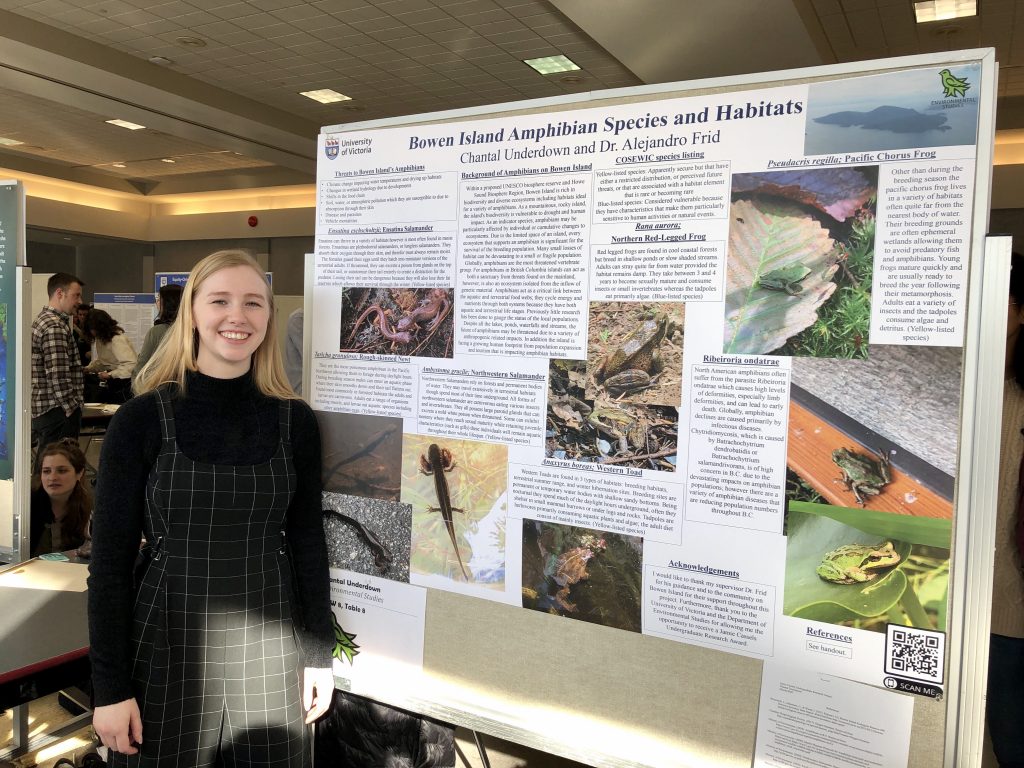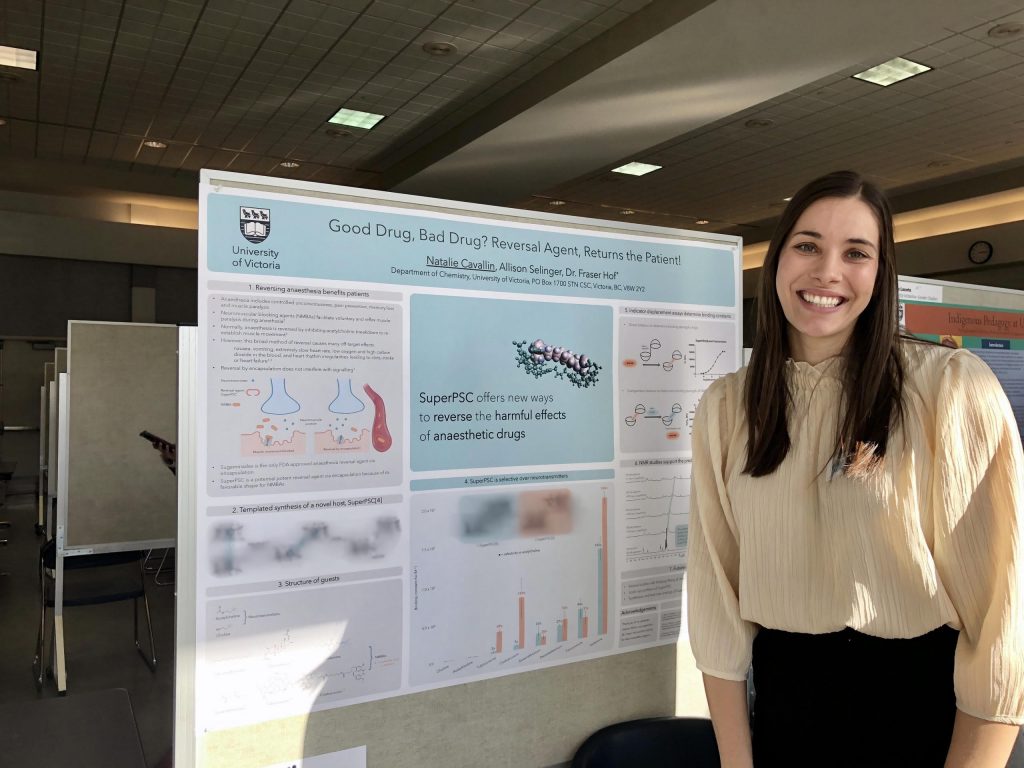The New Faces of Science at JCURA Research Fair
In 2020, self-identified women in Canada make up the majority of university graduates. UVic is now 53% women, and as I walked through the rows of academic posters at the Jamie Cassels Undergraduate Awards (JCURA) Research Fair, this fact was wonderfully apparent.
Through the Jamie Cassels Undergraduate Research Awards, high-achieving undergraduate students have the opportunity to work closely with graduate students or engage in independent research on any topic they so choose. From anthropology to biochemistry, English to environmental studies, women researchers represented their diverse methodologies and exciting findings to an appreciative crowd.
I was particularly impressed by the research and findings from the women in science (not surprising, given the international reputation of UVic Science). While women are still in the minority of S.T.E.M. (science, technology, engineering and mathematics) degree-holders, more women go into the sciences every year. Going forward, I’m optimistic this gap could be closing thanks in part to their inspiring research. I profiled three rising researchers to hear about their projects, their most surprising findings, and what they would say to the next generation of JCURA recipients.
Kara Ruff
- Department: Biology
- Majoring in: Biochemistry and Microbiology
- Project: Pathogens or symbionts? A study of the slime mold Cavenderia aureostipes var. Helvetia and its associated bacteria.
I know what you’re thinking: slime molds? But this detailed and intensive project from microbiology and biochemistry student Kara Ruff has long-ranging impacts for evolutionary science. These soil-dwelling amoebas are usually single-celled organisms but join together and become multi-cellular organisms under certain conditions.
By studying how and why they come together, scientists can begin to understand how single-celled organisms became multi-cellular millions of years ago. Kara’s research took this a step further to examine symbiotic relationships between the slime molds and the bacteria that are found within certain species. These bacteria gave certain slime molds special advantages over other individuals. By testing for the occurrence of these bacteria in the species she studied, Kara helped close gaps in scientific knowledge.
What’s the most surprising finding from your research?
It was surprising to find that in the model system, there was a symbiont that conferred benefits to the slime mold, however, I wasn’t able to find that same relationship in the five species that I studied.
What would you say to students thinking about doing a JCURA project?
It may be frustrating, but just keep going and try and get some results. And hope that your results are significant. They may [not be], but it’s okay, you’ll learn a lot along the way.
Chantal Underdown
- Department: Environmental Studies
- Project: Bowen Island Amphibian Species and Habitats
Chantal Underdown used citizen science methods and her own investigations to create a census of Bowen Island, just off of Vancouver. The first census of amphibians on Bowen Island, Chantal’s study unearthed surprising discoveries about the frogs, toads, and salamanders that call the island home.
The citizen science network also took Chantal through the JCURA research ethics process, to ensure that the data that she gathered with the help of Bowen Island residents was ethical and viable. The data will be used to help educate British Columbians about the vulnerable amphibian species that share our province.
What’s the most surprising finding from your research?
It’s been so exciting. Going into it, I had no idea what I was going to find. I definitely had points when I got discouraged, and I didn’t feel like I was making much progress, but [then] I kept making these finds.
The western toad was thought to be locally extinct on Bowen Island–and I found one. We also found a disease on the Pacific chorus frog (she points to a photo of a frog with an extra set of legs) which means that we have this parasite on the island, [a disease] that happens to be the source of wide declines through North America of various amphibians–that’s not great news, but the fact that it’s there means that it can now be managed. An increase in data in all of the species I surveyed was really valuable.
What would you say to students thinking about doing a JCURA project?
If you have to do an ethics approval, get on top of that! It takes a long time and it’s difficult. If you don’t have to do that, I would be very cautious to spread out your research throughout the year however you can, and stay in touch with your supervisor–they have a lot of great ideas. It was really beneficial. I’d recommend applying for anyone who can.
Natalie Cavallin
- Department: Chemistry
- Major: Chemistry in Medical Sciences
- Project: Good Drug, Bad Drug? Reversal Agent Returns the Patient!
Honours student Natalie Cavallin was part of a doctorate-led project to develop new ways to come out from under anesthesia. A huge variety of compounds make up what we know as anesthesia, and they produce the effects commonly associated with the procedure: induced unconsciousness, pain prevention, memory loss, and muscular paralysis.
Natalie works closely with researchers who are developing a new reversal agent to help patients come out from under anesthesia more safely. This new molecule, called SuperPSC, surrounds the anesthetic drugs and deactivates them by keeping them from working on the body’s neurotransmitters and muscular receptors. With the help of SuperPSC, patients will experience few side effects and a faster recovery from being anesthetized, with huge impacts for vulnerable patient populations such as the elderly.
What’s the most surprising finding from your research?
What was really cool was when we modified the structure of the molecule a little bit, we saw a change in how we were able to bind different-sized anesthetics. It was really cool to see how you change [it] and be able to target something different.
What would you say to students thinking about doing a JCURA project?
Do it without hesitation! You can learn so much through challenging yourself and pushing past your boundaries and working with other people [through your research]. It’s such an incredible experience. If you even have an inkling to do it, just do it, you will learn so much. You can really find what you like – there’s so much at UVic.
All photos my own.
Jamie Cassels Undergraduate Research Awards are part of Ideafest at UVic. Interested in doing a JCURA project of your own next year? Find out more here.






